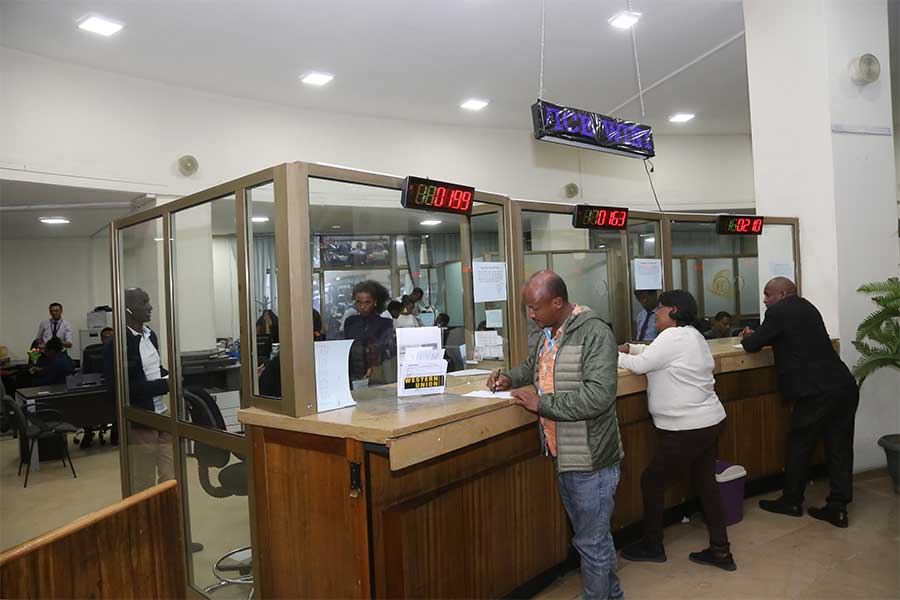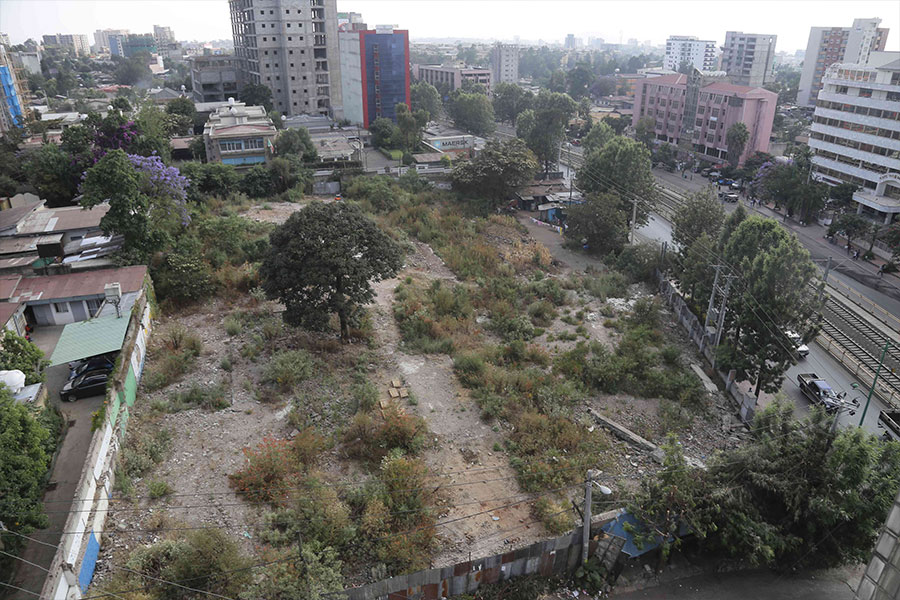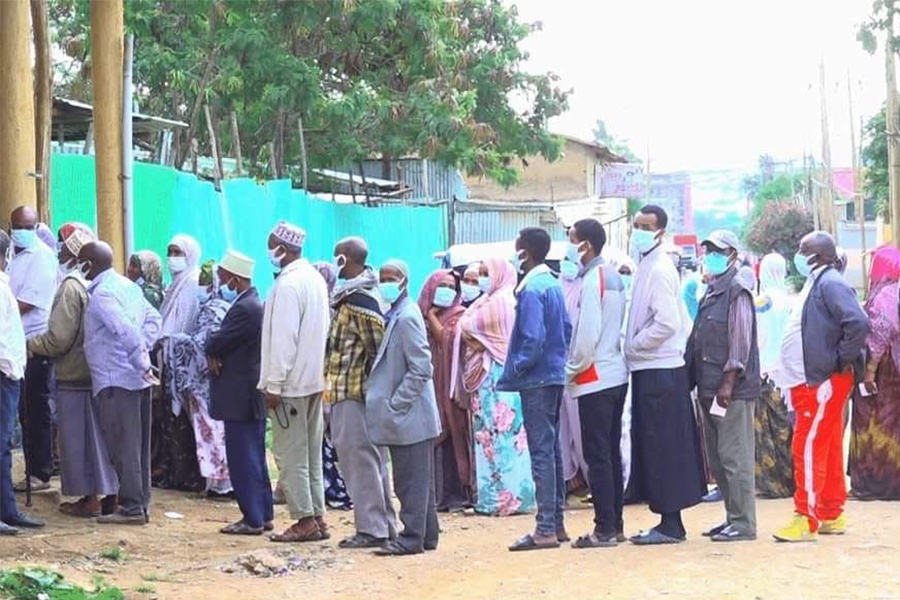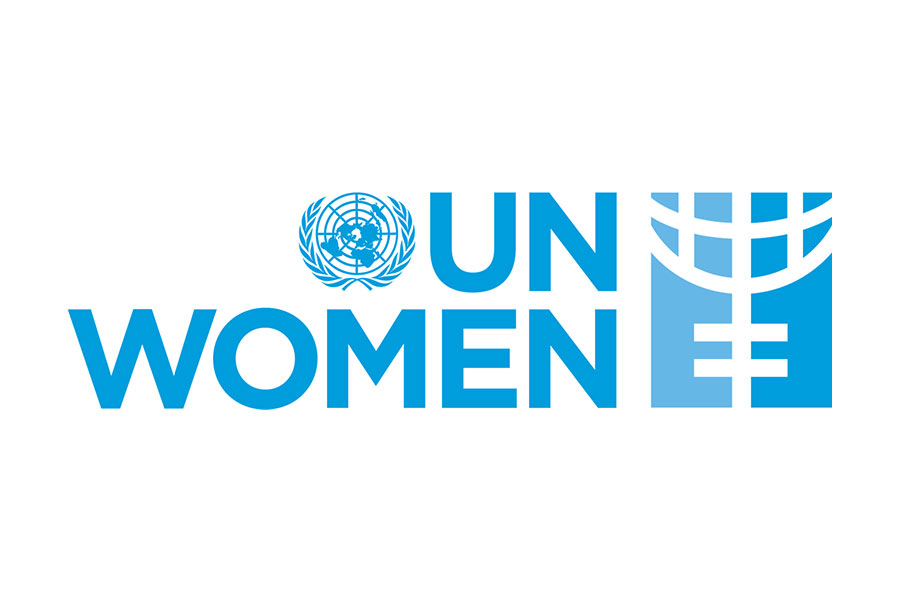
Agenda | Dec 14,2019
A staggering amount of possible losses have occurred due to repeated derailment of the Ethio-Djibouti railway with security issues indicated as critical hurdles to the pathway.
According to the State Minister of Trasport & Logistics Denge Boru, 145 million Br of possible losses for a combined 9,000 minutes is estimated within the nine months.
Denge stated this during the Ministry's performance report presentation to the Standing Committee on Urban Infrastructure & Transport Affairs chaired by Shewit Shanka last week.
He said the cross-border path through Methara and Welencheti towns, is prone to armed theft.
While attempts at the railway are a recent phenomenon, assaults on drivers have persisted over the last two years with increasing frequency.
President of the Ethiopian Transport Employers’ Federation, Birhane Zeru concurred the problems around Welencheti are still persistent with several drivers having been kidnapped a mere three weeks ago.
"It is a really difficult problem," he told Fortune.
Birhane who heads the 9,000-member strong federation says the attacks are financially motivated taking advantage of a security gap. He hopes the newly formed task force between police and the army will bring some respite to the distraught drivers plagued by theft and repeated kidnappings.
He has been advising the drivers that a strike would not solve the issue while continuing to report incidents to the Ministry.
Despite a coordinated effort with both regional and federal police being launched, creating a sense of ownership in the communities through which the train and freight trucks pass through was referred to as paramount by the Ministry's officials.
The Ethio-Djibouti railway which spans 786Kms still managed to deliver 1.5 million tons of goods during the period.
Ethiopia's logistics needs during the period amounted to 9.9 million tons of goods imported and 825,000 for goods exported almost exclusively through the ports of Djibouti. Moyale port accounts for less than one percent of the country's logistics demands while Berbera and Tajura ports take 2.9pc and two percent, respectively.
"The 96pc reliance on Djibouti for the logistics needs of Ethiopia is not a sustainable long-term strategy," said the newly appointed Minister of Transport & Logistics Alemu Sime (PhD) during the Parliament session. He said efforts would be required from Parliamentarians to diversify port access.
Despite insinuations five years ago on the possible utilization of the Eritrean port by Ethiopia as political ties were reconciled by the two countries, the Minister revealed that they still have not signed an agreement. He indicated that most of the protocol work from the Ethiopian side has already been completed.
The largest logistics company in the country, state-owned Ethiopian Shipping & Logistics which has a fleet of 609 trucks and a revenue of 32 billion Br in the last nine months, does not seem to be familiar with the incidents during the period.
"We've not experienced any incidents of that nature," Siraj Abdulahi, head of freight forwarding at the company told Fortune. At a press briefing held at company headquarters last week, the company did reveal that delays in the transport of goods in early September had occurred on the Galafi road connecting Ethiopia and Djibouti.
Ethiopia's and Djibouti's economic destinies are heavily interlinked, as evidenced by an IMF report four months ago which suggested that a two-year war in Ethiopia had resulted in a marked decline in the economic performance of the small country.
The IMF report suggested that heavy infrastructure projects that were debt-financed to facilitate the smooth transport of goods are at the root of the debt distress faced by Djibouti. Djibouti's debt-to-GDP ratio stood at 72pc in 2021, compounded by a narrow tax base and a large informal sector.
Experts in the logistics sector also reflect the sentiment expressed by the Minister on the necessity to diversify Ethiopia's logistics corridors.
A veteran in the industry who spoke to Fortune emphasized the need to utilize Berbera port more comprehensively. The expert said the Berbera port is keen on business relationships putting up directions in Amharic within the compound built by DP World.
Although the expert believes the economy will keep growing with or without diversified port access, he cautioned on the likely increased logistics pressure and heavy reliance on one provider.
Acknowledging that excluding Somaliland from IGAD might lead to complications in cross-border insurance, the expert emphasized that the ball is still in Ethiopia's court to steer negotiations for establishing banking and customs protocols that could see an increased volume of goods being processed through Berbera.
PUBLISHED ON
[ VOL
, NO
]

Agenda | Dec 17,2022

Fortune News | Sep 30,2021

Commentaries | Aug 18,2024

Featured | Sep 18,2021

Sponsored Contents | Oct 25,2021

Dec 22 , 2024 . By TIZITA SHEWAFERAW
Charged with transforming colossal state-owned enterprises into modern and competitiv...

Aug 18 , 2024 . By AKSAH ITALO
Although predictable Yonas Zerihun's job in the ride-hailing service is not immune to...

Jul 28 , 2024 . By TIZITA SHEWAFERAW
Unhabitual, perhaps too many, Samuel Gebreyohannes, 38, used to occasionally enjoy a couple of beers at breakfast. However, he recently swit...

Jul 13 , 2024 . By AKSAH ITALO
Investors who rely on tractors, trucks, and field vehicles for commuting, transporting commodities, and f...

Aug 23 , 2025
Banks have a new obsession. After decades chasing deposits and, more recently, digita...

Aug 16 , 2025
A decade ago, a case in the United States (US) jolted Wall Street. An ambulance opera...

Aug 9 , 2025
In the 14th Century, the Egyptian scholar Ibn Khaldun drew a neat curve in the sand....

Aug 2 , 2025
At daybreak on Thursday last week, July 31, 2025, hundreds of thousands of Ethiop...